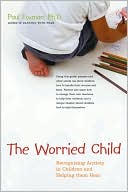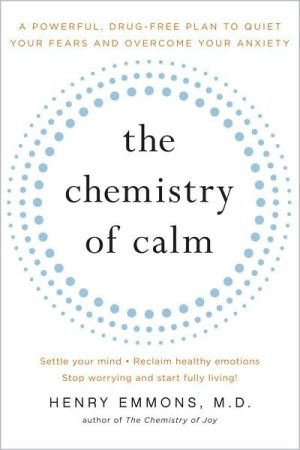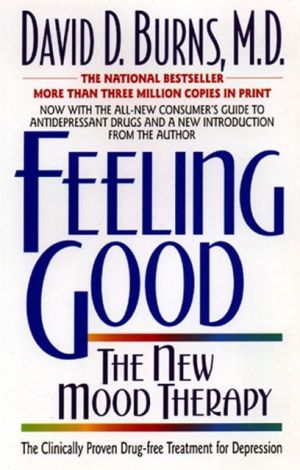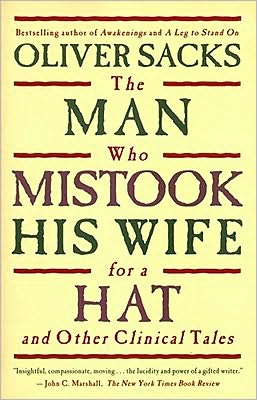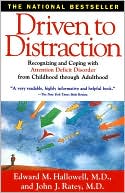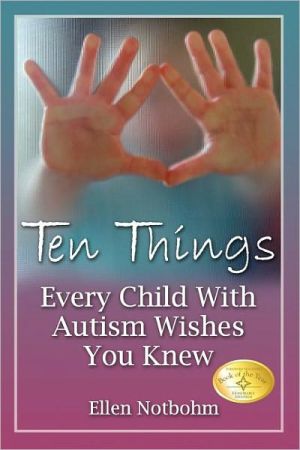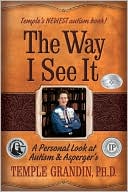Worried Child: Recognizing Anxiety in Children and Helping Them Heal
Search in google:
Anxiety in children decreases their intellectual, emotional, and social development, as well as physical health. Author Paul Foxman believes there are three interacting ingredients that contribute to anxiety in children — biological sensitivity, personality, and stress overload. The Worried Child shows that anxiety is preventable — or can be minimized — by raising children’s self-confidence, increasing social and self-control skills, and teaching them how to play, relax, and communicate their feelings and needs. Written for parents and teachers and anyone dealing with children, the guide covers the importance of adequate rest, sleep, and exercise and provides detailed lists, charts, skill exercises, sample dialogues, and case studies. It also presents extensive information on the various types and symptoms of anxiety disorders. Advice for educators, health care professionals, childcare workers, and psychotherapists is included along with a chapter and tutorial written specifically for children. Publishers Weekly Psychologist Foxman (Dancing with Fear) has penned a caring yet straightforward book about helping kids deal with feelings of angst. Noting that one in five children suffers from a mental health problem, Foxman says some experts call today's children the "shell-shocked" generation. Divorce, crime, violence, failing schools, the threat of terrorism and drug abuse are a few of the contemporary issues often magnified for kids by vivid media coverage, and they've contributed to the rise of stress and anxiety among children, says Foxman. The author, who suffered from anxiety as a child and as an adult, melds personal and professional experience as he differentiates between normal and abnormal worrying (the latter involves a degree and frequency that interferes with daily routines). According to Foxman, three factors coincide to create an anxious child: biological sensitivity, personality and stress. Children who are perfectionists, who are overly sensitive to criticism and have difficulty with assertiveness, among other traits, are prone to anxiety, though many of the worried child's personality traits, such as intelligence and a strong sense of responsibility, are positive. In addition to global issues such as war, terrorism and violence, Foxman delves into how personal crises (e.g., divorce, sexual abuse and school-related stress) can affect children, and suggests how parents can help and when they should seek therapy for their child. He rounds out this informative guide with a chapter for children that speaks directly to young readers. (Mar.) Copyright 2004 Reed Business Information.
ForewordxAcknowledgmentsxiiIntroduction1How This Book Can Help4My Experience with Anxiety5Part IAnxiety in Children: When Is It Normal, When Is It a Disorder?7Chapter 1What Is Anxiety?8What Is Anxiety and Why Is It So Prevalent Today?9Threats That Lead to Anxiety in Children11The Role of Stress in Children's Anxiety12Emotions and Anxiety16Cognitive Patterns and Anxiety17Three Ingredients in Anxiety17Chapter 2Childhood Anxiety Disorders21Children's Normal Fears21Anxiety Disorders in Children23Mixed Anxiety Disorders37Secondary Depression37Other Disorders Associated with Anxiety38Anxiety Disorders at Different Ages38Chapter 3Personality Traits in Anxious Children41The "Anxiety Personality Style"41Cognitive Patterns of the Anxious Child43Assets and Liabilities of the Anxiety Personality Style44Identifying Anxious Children in School and Day Care44What Parents Can Do45Part IISources of Anxiety in Children and How You Can Help to Counteract Them53Chapter 4Before and Beyond Birth: Developmental Stages and the Roots of Anxiety54Bonding54Brain Development and Anxiety62Early Child Development and Anxiety65What Parents Can Do68Chapter 5The Family and Anxiety in Children70Divorce71Child Abuse81Performance Pressure83Families and Feelings85Other Family Patterns and Styles87Sexuality88Drug and Alcohol Abuse90Religion and Spirituality91Discipline95Parents' Own Anxiety99Stress in Parents103Other Things Parents Can Do107Chapter 6Society and Anxiety110Dangers in the Environment111Natural Disasters112Lack of Health Care for Children114Sexual Abuse116Violations of Trust and Power123Children as Exploited Consumers125Drug and Alcohol Issues127Obesity and Related Health Problems128Chapter 7Terrorism, War, and Child Anxiety131My Anxiety about War131Terrorism134Government Responses to Terrorism136What Parents Can Do139Chapter 8Anxiety in School144Grading Our Schools144How Schools Create Stress and Anxiety in Children145Learning Styles146Multiple Intelligences147Emotional Intelligence149Personality Integration150Social Stress and Anxiety152Bullying, Teasing, and Violence in Schools153Theft in Schools154Academic Sources of Anxiety155Homework Stress and Anxiety155When Does College Begin?156What Parents Can Do159Chapter 9The Media and Child Anxiety162Television and Movies162Music168Video Games170Inadequate Rating Systems172Internet Surfing172What Parents Can Do173Part IIITreating Anxiety in Children177Chapter 10Biochemistry, Medication, and Nature's Remedies178Help Often Begins with the Family Doctor178Biochemical Approach to Treating Anxiety180Brief History of Drug Treatment for Anxiety181Pros and Cons of Medication for Children's Anxiety181Alternative-Medicine Approaches184Chapter 11Psychotherapy for Anxious Children192When to Seek Therapy192How to Choose a Therapist for Your Anxious Child193How Therapists Evaluate Anxious Children194Types of Therapy for Anxious Children195Components of Therapy for Anxious Children199Treatment Progress212Health-Insurance and Managed-Care Issues213Chapter 12A Chapter for Young People: What You Can Do to Help Treat Your Own Anxiety216What's Good about Anxiety?216What You Should Know about Anxiety217How to Relax and Why220How to Control Stress222Are You Having Fun Yet?224Are You "Too Sensitive"?225Are You a Perfectionist?226Do You Worry a Lot?227How to Stop Unwanted Thoughts or Behavior228How to Speak Up for Yourself229Are Your Parents Divorced?230Does School Make You Anxious or Stressed?231Bad Things That Can Happen and What You Can Do233How Do You Feel?234The Good and Bad News about Television, Movies, Video Games, and Music235Good Foods and Bad Foods for Anxiety238Should You Get Professional Help?240Medicine for Anxiety241Chapter 13Case Examples243Social Anxiety243Generalized Anxiety244Obsessive-Compulsive Disorder246Group Therapy for Adolescent Social Anxiety248Panic Disorder and Separation Anxiety252Divorce, Separation Anxiety, and Emetophobia256Generalized Anxiety Disorder (GAD) and Anxiety Associated with a Medical Condition257Quick Cure for Generalized Anxiety Disorder259PTSD with Mixed Anxiety Disorder260In Closing263AppendixWhat Schools Can Do to Reduce Anxiety264Alternatives to Tests and Numerical Grades264Group Learning and Multi-Age Classes266Safety and Violence269Relationship Between School and Family270Curriculum Considerations272Use of Technology273Honor Code273Resources275Bibliography279Index283
